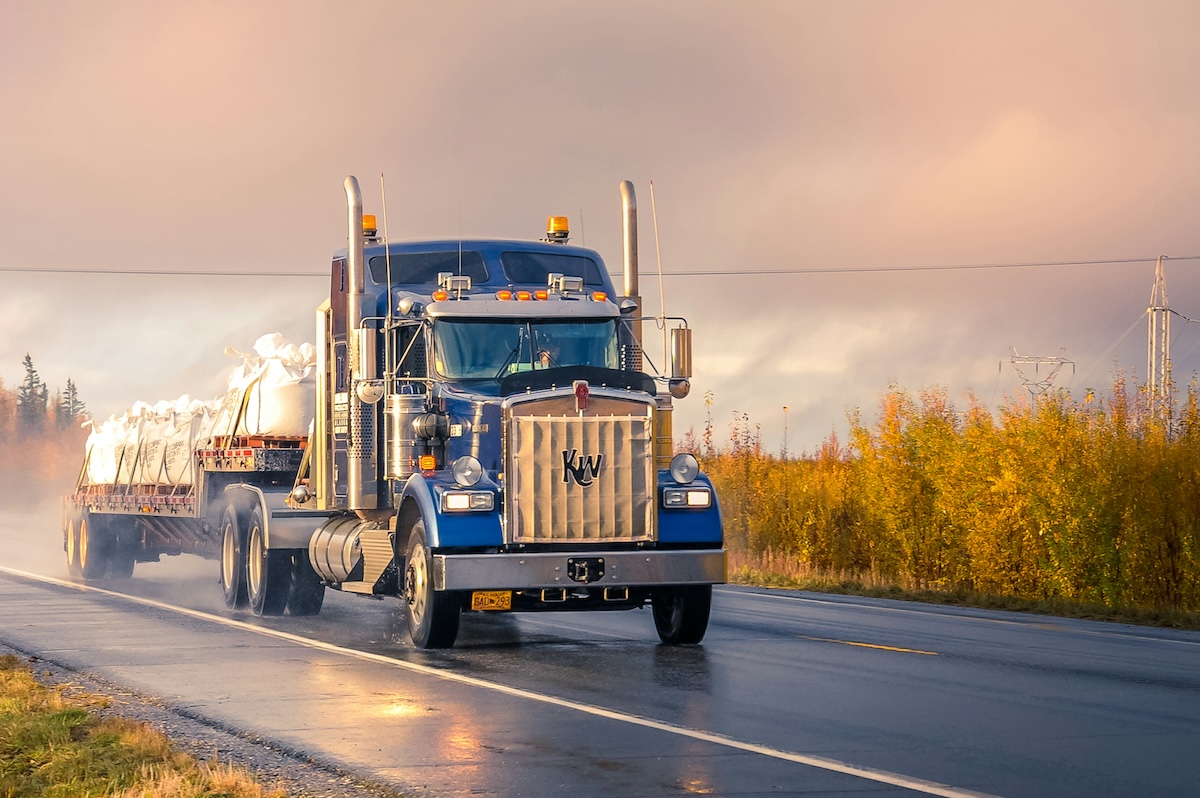
Navigating the Highways and Byways of a Trucking Career
By: Mike Coleman
Skip to Section
Article Summary
Trucking offers a unique career path combining travel with work, paying over $100,000 annually while giving you a front-row seat to America’s highways.
You’ll learn the realities of trucking careers, including competitive salaries, sign-on bonuses, and comprehensive benefits packages that make this profession financially attractive. The guide examines both the freedom of route selection and the challenges of extended time away from home, plus the physical and mental demands of long-haul driving. You’ll also get insights into how electric vehicles and autonomous technology are reshaping the industry’s future, creating both opportunities and necessary adaptations for drivers.
- Truck drivers average over $100,000 annually with benefits including health insurance and retirement plans
- Time away from home ranges from days to weeks, requiring strong mental fortitude and relationship management
- Physical health challenges include limited exercise opportunities and irregular sleep patterns
- Electric trucks promise reduced operational costs and environmental impact as the industry evolves
- E-commerce growth creates steady demand for trucking professionals despite technological changes
We talk a lot about how to find remote jobs that will let you travel the world while working from your laptop—but what if you’re interested in combining travel with work? And what if you’re not super interested in office-type jobs like coding, marketing, and so on?
Well, let’s talk about trucking. If the appeal of driving an 18-wheeler ignites your wanderlust and sense of adventure, you might actually love this job.
Let’s take a look at some pros and cons of trucking jobs, and help you figure out whether this is something to pursue.
Onward!
The Allure of the Open Road
The trucking profession can be incredibly appealing for its unique blend of freedom and financial incentives. This career allows you to traverse the vast landscapes across the country, from bustling cities to quiet rural areas, giving a firsthand view of our many, many regions. It’s a great way to explore a bit and see sights that you may not have had a chance to otherwise.
Financially, trucking stands out with its competitive salary structures, which often surpass those of typical entry-level positions that require similar levels of education or training—according to Indeed, the average salary for a truck driver in the US is over $100,000. The industry is known for offering substantial sign-on bonuses as an incentive for new drivers, which can significantly boost earnings in the initial years. And comprehensive benefits packages which can include health insurance, dental and vision plans, retirement savings plans, and paid time off contribute to the career’s attractiveness, adding a bit of security and long-term stability.
If you’re self-motivated, trucking caters to those valuing autonomy and self-management. Drivers have the leeway to choose their routes and schedules in many cases, which can lead to a satisfying balance between work and personal life. This level of independence, coupled with solitary drives, can be ideal for individuals who prefer working alone and making decisions without direct oversight.
The Nitty-Gritty of Trucking Life

Photo by Michael SKOPAL on Unsplash
Despite its appealing aspects, trucking is not without its challenges—understanding the downsides can help you decide whether this career is right for you.
The biggest issue you’ve probably heard of is the extensive time spent away from home, which can stretch from days to weeks. This separation can strain your personal relationships and make you feel isolated and lonely, which can be difficult to manage over time.
The monotony of long drives is another factor to consider; you might spend many hours, and sometimes days, navigating highways with minimal variation in scenery or activity. This repetition requires a strong mental fortitude and the ability to find satisfaction in the routine aspects of the job.
Finally, the trucking lifestyle can negatively impact your physical health if you don’t pay attention to it. Drivers are confined to the cabin of their vehicle for extended periods, which can be difficult for maintaining a regular exercise routine and getting to healthy food options. The irregular hours associated with long-haul trucking can also disrupt sleep patterns—which can affect your health over the long-term.
Are You Cut Out for This?
Considering a career in trucking takes a lot of careful thought, introspection, and an understanding of the field’s complexities. Ask yourself whether you value independence and solitude—and just how much of it you can handle. Think about whether you can handle long hours alone, seeing monotonous landscapes for a fair portion of each trip while considering safety, route planning, and time. It can be tough!
But if you can find balance among the challenges and freedom, trucking jobs give you a rare chance to see more of this country while making a living.
The Road Ahead
Before we wrap up, let’s look at the future of trucking. The industry is on the cusp of significant transformations thanks to technological advancements. The development and eventual widespread implementation of electric vehicles are anticipated to alter the landscape considerably. Electric trucks promise to reduce operational costs and decrease the environmental footprint of freight transport, aligning with global sustainability goals.
And the advent of autonomous or semi-autonomous vehicles (yes, that includes trucks and not just personal vehicles) presents both challenges and opportunities. While there is concern about job displacement, these technologies also offer the potential to make trucking safer and more efficient. They can reduce the strain of long-haul driving and allow drivers to focus more on logistics and less on the physical act of driving.
Staying updated with these changes is important for anyone in or entering the field—continuous learning and adaptability will become even more essential as new technologies redefine roles within the industry. Moreover, the growth of e-commerce has led to an increased need for transportation services, indicating a steady or even growing demand for trucking professionals. This suggests strong job security but also emphasizes the need for drivers to adapt to evolving industry standards and expectations.
Over to you! Friends of Frayed Passport: do you have experience in this field, or know someone who does? Share your stories and advice with fellow travelers and job-seekers in our community!
About the Author
Mike is a writer who researches and shares actionable advice around travel lifestyle, finance, and personal growth. He loves any trip where he can explore the great outdoors, and believes everyone should be able to experience travel for personal development and fulfillment. Read his other articles on Frayed Passport here.Information published on this website and across our networks can change over time. Stories and recommendations reflect the subjective opinions of our writers. You should consult multiple sources to ensure you have the most current, safe, and correct details for your own research and plans.
Frayed Passport is a participant in the Amazon Associates Program, an affiliate advertising program designed to provide a means for sites to earn advertising fees by advertising and linking to Amazon.com. We also may share links to other affiliates and sponsors in articles across our website.




